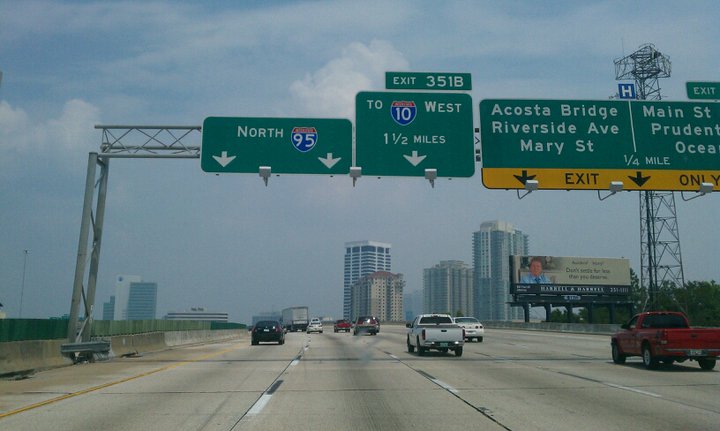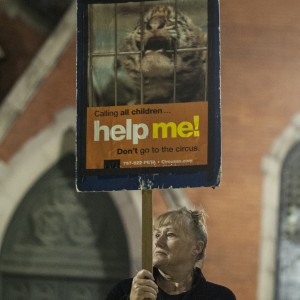By Alanna O’Rourke and Shelby Gillis| gargoyle@flagler.edu
Jacksonville is most populous city in Florida. It spans more than 874 square miles, making it the largest city by area in the United States. And until recently, it was the largest American city that did not offer some human rights protections to LGBT people.
That is changing.
In early April, a mayoral directive was posted, stating that city employees, contractors, vendors and others associated with the city were prohibited from discriminating against LGBT people.
Human rights advocates say are encouraged, but not completely satisfied.
“While this updated City policy will protect hundreds of LGBT citizens from discrimination at work, our work is definitely still not done,” according to a statement on the Jacksonville Coalition for Equality website. “This is a good first step, but until all of our LGBT citizens in Jacksonville are protected from discrimination in the areas of employment, housing and public accommodations, our work will not be complete.”
Earlier this year, Jacksonville’s City Council tabled an ordinance that would have expanded protection for LGBT people.
“Jacksonville has always been a little slower to move forward on things,” said Dan Merkan, chair of the Jacksonville Coalition for Equality. “It’s a conservative city in some ways by nature, but it is moving forward and progressing. We have a fairly young population and we have whole new crop of folks that are looking at Jacksonville. They think this could be the next big hot spot. But in order for us to do that we need to catch up in terms of our policies and be where other cities have been for decades now.”
The mayoral directive states:
“Harassment on the basis of any other protected characteristic also is strictly prohibited. Under this policy, harassment is verbal, written or physical conduct that denigrates or shows hostility or aversion toward an individual because of his/her race, color, religion, sex, sexual orientation, gender identity or expression, national origin, age, disability, marital status, citizenship, genetic information or any other characteristic protected by law or that of his/her relatives, friends or associates, and that: (i) has the purpose or effect of creating an intimidating , hostile or offensive work environment; (ii) has the purpose or effect of unreasonably interfering with an individual’s work performance; or (iii) otherwise adversely affects an individual’s employment opportunities.
“These policies apply to all applicants, employees (regardless of employment category or status), or anyone representing the City of Jacksonville on business such as a volunteer, contract worker, or vendor.”
Earlier this year, some church leaders had lobbied against an expanded human rights ordinance.
“It teaches that the members of our community embrace homosexual and transgender behavior and it teaches that is to be accepted,” Heath Lambert, associate pastor at First Baptist Church, told the First Coast News.
It’s a contentious debate.
Earlier this month, 400 Duval County businesses signed a petition to support non-discrimination laws.
Officials in Jacksonville have been arguing over the issue for years.
In 2012, the Jacksonville City Council rejected bills which would have expanded the Jacksonville Human Rights Ordinance to include sexual orientation, gender identity and gender expression.
Merkan said there is documentation showing citizen demands for these protections since the 1970s.
“When the Jacksonville Human Rights Organization studied this issue back in 2009, they went back and found documents that people in the late 70s have come forward and said Jacksonville should extend its ordinance to include LGB people,” Merkan said.
In fact, there are cities that have passed ordinances for sexual orientation and gender identity as far back as the ’70s. The first city was East Lansing, Michigan, which passed an ordinance protecting people based on sexual orientation back in 1974 and the next year the first policy that included gender identity expression was passed in Minneapolis, Minnesota in 1975.
In January, the Jacksonville City Council held a debate on whether or not the HRO should be updated to include and protect LGBT citizens. Citizens of Jacksonville voiced their opinions about the proposed legislation, and many people seemed to be in favor of the update. But, there were many people who opposed the update, which would have included LGBT community protection from discrimination.
On Feb. 18, the proposals were withdrawn, yet again, at a city council meeting.
Some people question the bills on religious grounds.
“We have some people in the coalition that believe homosexuality is a sin,” Merkan said. “They still have that belief in their religious tradition, but they still believe that you should treat people fairly in the public sphere… you shouldn’t be throwing people out of restaurants or firing from their jobs just because you don’t agree with an aspect of their character.
“I think some folks in the opposition would like to create a narrative that this whole issue is Christians versus gays and that’s not true at all. The reality is we have a faith coalition. We have 119 different pastors across many denominations who are all in support of the human rights.. they don’t see it in conflict of supporting basic human rights for LGBT people is not in conflict with the religious beliefs at all,” Merkan said.
“At the core of religious beliefs many of them are about how you treat others like you’d like to be treated and that’s sort of like what this is really about, treating people fairly. It’s a moral thing to treat people fairly.”







Be the first to comment on "Jacksonville’s stubborn fight over LGBT rights"